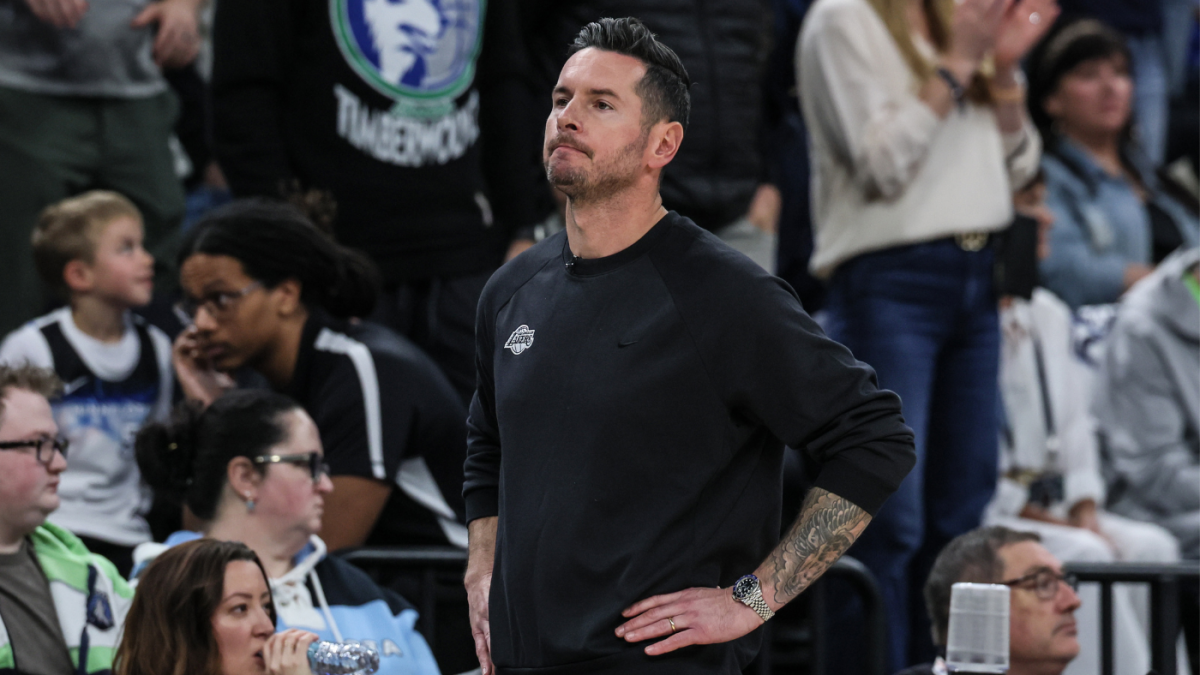“`markdown
The Storming Exit of JJ Redick: A Deep Dive into the Lakers’ Press Conference Drama
In professional sports, press conferences are rarely just about delivering information—they’re performances under pressure, where every word and reaction is dissected. For JJ Redick, the Los Angeles Lakers’ first-year head coach, a pregame press conference ahead of Game 5 against the Minnesota Timberwolves became an unscripted drama. His abrupt exit after clashing with a reporter over a lineup question didn’t just go viral; it exposed the raw nerves of coaching in the NBA’s relentless spotlight.
The Incident: When Questions Ignite Tensions
The flashpoint came when a reporter asked Redick to justify his Game 4 decision to play the same five players for the entire second half—a 24-minute stretch without substitutions. To Redick, the question seemed less about strategy and more about undermining his credibility as a rookie coach. His response was visceral: he exited the press conference mid-reply, leaving a roomful of journalists and fans stunned.
This wasn’t merely a heated moment; it was a collision of expectations. The Lakers, a 50-win team and the West’s No. 3 seed, were fighting to stay alive in the playoffs. Every tactical choice was magnified, and Redick’s reaction laid bare the weight of that scrutiny.
The Context: A Rookie Coach in the Crucible
Redick’s transition from podcasting to coaching has been anything but smooth. Despite leading the Lakers to a strong regular-season record, the playoffs have tested his adaptability. Game 4’s lineup gamble—sticking with a small-ball unit to counter Minnesota’s size—backfired, fueling second-guessing. When the press zeroed in on that decision, Redick’s frustration erupted.
The NBA media ecosystem thrives on dissecting coaching moves, but Redick’s background adds layers to this story. Unlike seasoned coaches who’ve weathered decades of criticism, he’s still calibrating his public persona. His walkout wasn’t just about one question; it was a reflexive pushback against a narrative that he’s out of his depth.
The Fallout: Thick Skin or Thin Ice?
Reactions poured in instantly. Charles Barkley, never one to mince words, called Redick “sensitive” on *Inside the NBA*, arguing that handling tough questions is part of the job. Others, however, noted the hypocrisy—veteran coaches like Gregg Popovich have famously bristled at reporters without facing the same backlash.
The incident also reignited debates about media access. Should coaches be obligated to justify every in-game choice, or does relentless questioning cross into badgering? Redick’s exit forced a conversation about where accountability ends and micromanagement begins.
The Bigger Picture: Coaching in the Age of Noise
Redick’s situation isn’t unique. Modern coaches navigate a minefield of hot takes, social media outrage, and 24/7 analysis. The pressure to explain decisions—often while protecting locker-room dynamics—creates an impossible tightrope walk.
Consider the parallels: Steve Kerr’s sarcastic retorts to repetitive questions, or Erik Spoelstra’s infamous “positionless basketball” deflection. Coaches develop armor, but Redick, still forging his, chose confrontation over diplomacy. Whether that’s a liability or a defiant strength depends on whom you ask.
Moving Forward: Lessons for Redick and the Lakers
For Redick, this moment could be a turning point. Adapting to the NBA’s media demands doesn’t mean surrendering to scrutiny—it means mastering the art of deflection, humor, or even controlled confrontation. The greats (think Phil Jackson’s zen non-answers) turn press conferences into chess matches.
The Lakers, meanwhile, must insulate their coach. LeBron James and Anthony Davis’s public support could shift the narrative, but Redick’s growth hinges on self-awareness. Can he channel this fire into sharper communication, or will clashes define his tenure?
Conclusion: More Than a Walkout
JJ Redick’s press conference storm-off wasn’t just a viral blip—it was a case study in the pressures of modern coaching. The NBA’s glare leaves no room for thin skin, yet it also rewards authenticity. As Redick and the Lakers regroup, the lesson is clear: in a league where every syllable is parsed, the best coaches don’t just manage games; they master the art of the moment.
“`











